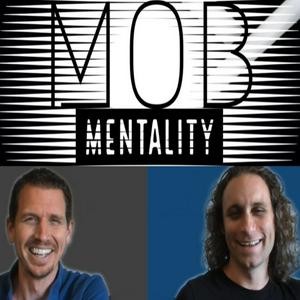Football, Trust, and Code: What Retro Bowl Teaches Tech Leaders, Coaches, and Teams
🏈 Welcome to another episode of the Mob Mentality Show, where we explore the intersection of software development, leadership, and real-world lessons—from the unexpected to the game-changing. This time, we're talking Coaching Credits—as seen in the addictive mobile football game Retro Bowl—and how they map directly to trust, influence, and leadership in software teams.
🎙️ What are Coaching Credits?
In Retro Bowl, Coaching Credits represent the respect and trust you’ve earned from players, staff, and fans. They let you upgrade your team, hire top-tier talent, and level up your environment. In software development, we argue Coaching Credits are just as real—earned through Extreme Programming (XP), Mob Programming, Test-Driven Development (TDD), Continuous Delivery (CD), and strong relationship-building.
👶 Austin kicks it off with a story about trying to stay awake helping his wife with their new baby—turning to Retro Bowl as a late-night lifeline. That sparks a deep dive into what the game teaches us about:
Building trust and respect through small wins
The balance between performance and relationships
Using “credits” (influence) wisely inside and outside your team
How to upgrade your environment and talent pool over time
What happens when you try to “spend” influence you don’t actually have
👨💻 In Dev Culture Terms:
Earn trust by delivering value. Spend it by coaching others, refactoring code, upgrading environments, or influencing org-wide decisions. Just like in Retro Bowl, you can overreach. Think: trying a big move when your trust bank is empty = a bounced check.
📘 We also tie Coaching Credits to Stephen Covey’s 7 Habits—specifically, the idea of an emotional bank account—and reflect on how these lessons align with the origin story of mob programming.
🚨 Key Questions We Explore:
Can you go into Coaching Credit “debt”?
Is quick wins and trust the only way forward when you're starting from zero?
Are you too transactional in how you lead or code?
Should someone build a Software Dev Sim game like Retro Bowl? 😅
💡 If you're a software engineer, tech lead, or engineering manager, this episode offers a fun but surprisingly deep framework for thinking about how trust, respect, and influence shape the way you build products and teams.
Video and Show Notes: https://youtu.be/ZWgOkphBFNI
